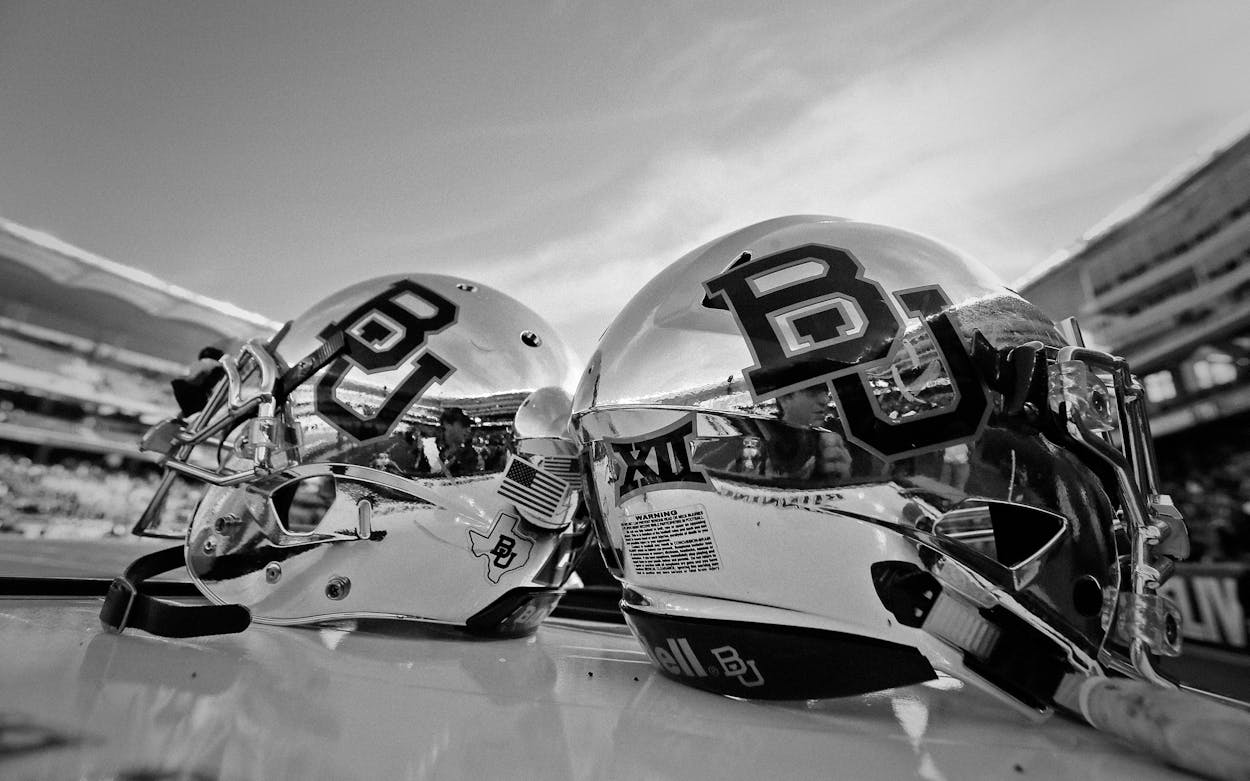Dolores Lozano filed a lawsuit against Baylor University in October 2016, claiming that when she was a senior there two years prior, university officials mishandled her accounts of abuse at the hands of a football player. Seven years later, she finally had her day in court. And on Tuesday, an eight-member jury found that the school was negligent in its handling of several domestic violence reports she made and violated her rights under the federal civil rights law known as Title IX.
The verdict came after more than a day of jury deliberations, which began on Monday afternoon. During the closing arguments, lawyers for Lozano and Baylor presented wildly different versions of those 2014 events. At issue was the question of what happened both before and after Lozano told university officials that she was assaulted by her ex-boyfriend, then–Baylor football player Devin Chafin, in March of that year. (No criminal charges were ever filed against Chafin regarding the incident.) Lozano’s attorney Zeke Fortenberry noted that Baylor officials were aware of earlier complaints against Chafin—for drug use, driving while intoxicated, and possession of alcohol—and allowed the football team to handle them internally. That was consistent, he argued, with a fact report compiled by law firm Pepper Hamilton in 2016. The report, commissioned by the university after allegations arose that it mishandled sexual assault complaints, found that the Baylor football program operated a system of punishment for its players separate from the process in place for other students. In one example that was discussed in the trial, players who were being disciplined for a variety of offenses would be forced to push a 45-pound weight lifting plate across the football practice field or perform other conditioning-related tasks. During the trial, Baylor’s former athletic chaplain Wes Yeary testified that shortly after Lozano had reported the assault to him, he saw Chafin in the weight room, working out on the StairMaster with similar weight lifting plates in his hands.
Fortenberry’s argument hinged on testimony from several other officials who had been associated with the football program at the time—most notably, former head coach Art Briles and former athletic director Ian McCaw. (Briles and McCaw had been named as defendants in the suit until late in the trial, when Judge Robert Pitman dismissed them from the case.) Both men testified that they didn’t receive training in their responsibilities under Title IX until after Lozano had graduated, which Fortenberry argued was evidence that Baylor was negligent in its duty to comply with the law. Instead, he said, “they had their own system of pushing plates as punishment.”
Baylor’s counsel took a surprising position. Instead of arguing that the incident Lozano reported was unfortunate but not the fault of the university, attorney Julie Springer tried to persuade the jurors that Lozano had been dishonest about it. Relying on contemporaneous notes from a nurse practitioner who had examined Lozano and on a deposition from Chafin—who downplayed the incident and described Lozano as the aggressor—Springer argued that Lozano didn’t actually suffer the injuries she claimed to have suffered. She noted that photographs Lozano took of her injuries only included bruises on her arms. “Where are the pictures of her face, of her stomach?” Springer told jurors that the day after the incident, Lozano missed a gymnastics practice, citing her bruises—but that shortly thereafter, she went to Padre Island for spring break. If Lozano had really suffered the injuries she described, Springer suggested, she wouldn’t have wanted to wear a bathing suit on the beach.
Springer also suggested that the testimony from Chafin—who was readmitted to Baylor, tuition-free, in 2020, with the lawsuit still pending—was more credible than Lozano’s. “He doesn’t have anything to gain by testifying” that he was innocent of abusing his ex-girlfriend, she argued. Further, Springer noted, Lozano had, after the incident, resumed contact with Chafin. “This is not a case of battered woman syndrome,” she told the jury. “That’s a real thing. She is not a battered woman; she went back because she wanted to. She was not in an abusive relationship.”
After Lozano reported the incident to Baylor, she received counseling services from the Baptist university. The nature of that counseling was also a point of contention. Lozano, during the trial, testified that she felt judged during a session because earlier in her relationship, she’d had premarital sex with Chafin and had obtained an abortion. “Was it really counseling when she walked out feeling like she was going to hell?” Fortenberry argued. “They weren’t there to help her break the cycle of domestic violence.” Springer, meanwhile, showed the jury notes from the counselor in which the Baylor official wrote that Lozano “reported feeling guilt” and had “requested another appointment because she felt it was helpful,” arguing that Lozano was “not being truthful.”
Ultimately, the five women and three men comprising the jury believed Lozano’s account. They found that Baylor had exhibited “deliberate indifference” to reports of sexual harassment, sexual assault, and domestic violence during Lozano’s time at the university. While the jury opted not to award monetary damages on that count, it did award Lozano $270,000 for a second claim: that Baylor was negligent in its failure to take measures to prevent violence against Lozano from occurring. It was $50,000 dollars more than the top end of the range her attorney had asked for.
Lozano was just one of multiple plaintiffs to sue Baylor in the wake of the university’s sexual assault scandal, which Texas Monthly reported in 2015. She was, however, the only one to successfully take a case to trial. In September, Baylor settled a lawsuit brought by fifteen other women for an undisclosed sum.
- More About:
- Sports
- Art Briles
- Waco








